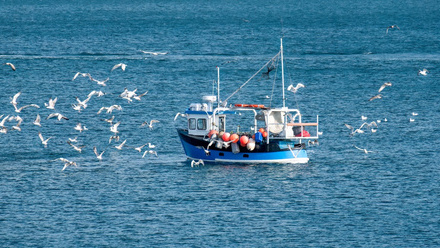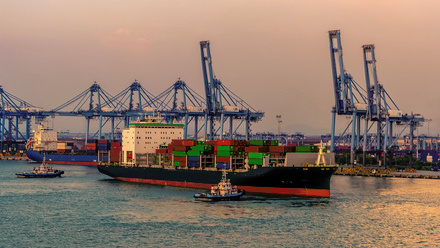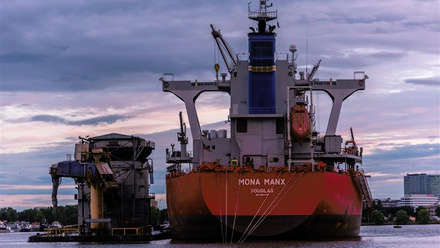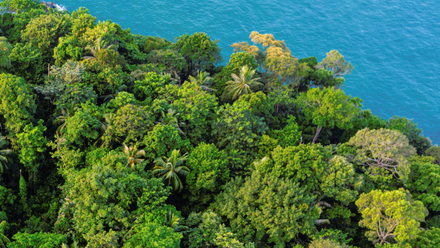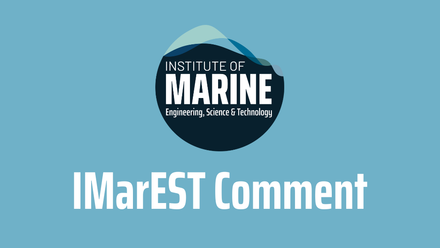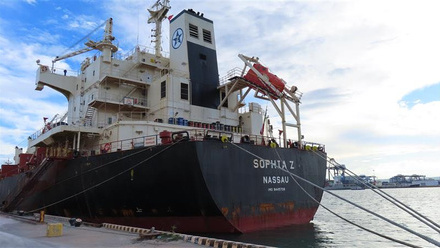Dark fleet tankers: Estonia’s case study warning for Southeast Asia
The increasing number of false-flagged and stateless tankers is reshaping maritime security challenges across the world’s sea lanes.
There are tankers that exploit gaps in international law by fraudulently registering under flags of convenience or assuming false identities to avoid enforcement. Indeed, approximately 100+ false-flagged tankers now operate with limited scrutiny in critical regions like the Indian Ocean and South China Sea, bringing new impetus to the questions for coastal states: do they have the legal right to act, and should they exercise that right?
Estonia’s recent boarding of the tanker Kiwala has put these questions in the spotlight. Acting within its territorial sea, the Estonian Navy relied on the powers granted under the United Nations Convention on the Law of the Sea (UNCLOS) to intervene when a vessel’s passage is no longer ‘innocent’. The vessel was known to be operating under a false flag — a clear violation of international shipping norms.
Legal scholars have long debated whether coastal states should proactively use their UNCLOS powers to enforce safety and pollution rules, for example, denying passage to stateless vessels. Others warn that ‘creative’ interpretations of UNCLOS risk undermining the rules-based maritime order.
But enforcement is not without consequence. Iran has seized commercial tankers in retaliation for interdictions, escalating regional tensions and Estonia must have considered how Russia might respond.
New testing ground
Southeast Asia may now be the next testing ground, but the environment there is far more complex.
States like Malaysia, whose waters are frequented by false-flagged tankers, face a different legal and operational challenge. Its waters include the critical Singapore Strait — where UNCLOS transit passage rules sharply limit interference with shipping.
Malaysia hasn’t taken a strong stance on policing these vessels in its EEZ (exclusive economic zone), with one notable exception in October 2023 when it detained two vessels accused of conducting illicit ship-to-ship transfers of oil east of Johor. In that case the vessels were not falsely flagged — but it demonstrated that Malaysia has the capability to conduct this type of enforcement when needed.
In contrast to this is Malaysia’s assertion of the right to regulate other activities in its EEZ, particularly military exercises, which is not in keeping with the generally held interpretation of UNCLOS. And closer to shore, within its territorial waters, Malaysia runs a system of detaining vessels for illegal anchoring in, imposing fines before release.
Given that Malaysia has already experienced several incidents involving dark tankers, including an explosion and an allision, Estonia’s more assertive approach offers a useful precedent. The tools for enforcement already exist in Malaysia’s legal framework. The capability to act is proven. What remains is a policy choice: whether to accept the growing presence of false-flagged tankers as an unavoidable feature of the maritime landscape, or to take action that signals those risks will be managed, not merely observed.
Estonia’s boarding of Kiwala shows that coastal states can act, and that doing so shapes not just the behaviour of ships, but the expectations of other states.
In Southeast Asia’s crowded waters, enforcement will always carry diplomatic risks. But so too does inaction. For countries like Malaysia, the question is no longer whether they have the right to enforce against dark fleet tankers. It is whether they are prepared to set the terms of engagement in their own waters, before someone else does.
Mark Douglas completed his engineering training in New Zealand and in the UK has served in various roles ashore and at sea, including as Decommissioning Engineer of HMNZS Endeavour. Douglas previously served as New Zealand’s Assistant Defence Adviser to Singapore and is currently a Maritime Domain Analyst at Starboard.
The views in the article represent those of the author, and not necessarily of IMarEST.
Tell us what you think about this article by joining the discussion on IMarEST Connect.
Image: unloaded container ship in Baltic. Credit: Shutterstock.

